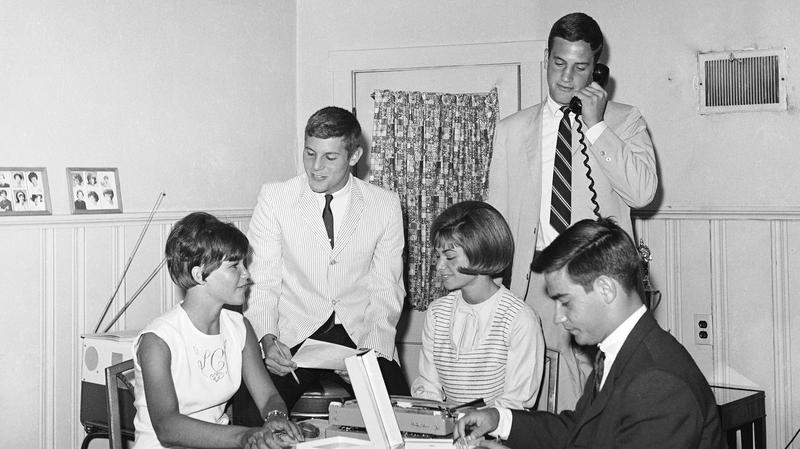These 1960s Computer Dating Services Want to Know Your Drug of Choice

Have you ever wondered what the computer dating scene was like in the 1960's? I know I have! Listen to host E.S. Savas of WNYC's "Computers in Modern City Government" talk with Assistant Attorney General Sandy Mindel about the pros and cons of mainframe-powered matchmaking.
How exactly did computer dating work in 1969? Well, typically, dating agencies would deploy "attractive young girls" to roam city streets and hand out paper questionnaires. Those questionnaires would require information like your name and address but also your sexual attitude (are you conservative? very liberal?) and drug use (do you prefer grass? goof balls? STP?). Your responses, along with other eligible singles' answers, were fed into a computer punch card system, which in turn analyzed and delivered a list of potentially perfect mates.
Being a new technology, computer dating systems had little oversight and Mindel discusses some of the most common complaints coming into the Attorney General's office. Some are fairly mundane (bad matches through computer glitches), but others seem more egregious, like fraud and the sale of personal information to the highest bidder.
By 1969, the skepticism and curiosity about computer dating had reached its peak in popular culture. On an episode of Gomer Pyle: USMC, the title character is tricked into a computer date, and on Bewitched, Samantha uses a computer service to find an earthly match. Of course, television sitcom matchmaking always ends in comic disaster, and the whole idea was ripe for satire. In this fairly offensive clip from 1969, Dean Martin and Frank Sinatra find out they are made for each other with the help of "Liberace's computer."
So, if you think your crippling dating-app-induced social anxiety is your generation's burden alone, take some comfort in the fact that your forbearers had it just as bad.
Audio courtesy of the NYC Municipal Archives WNYC Collection.
WNYC archives id: 151647
Municipal archives id: T4817
